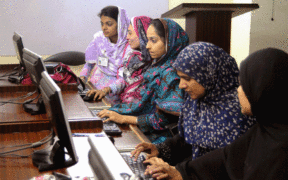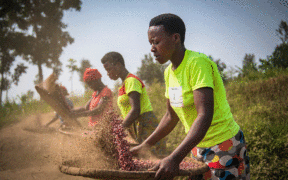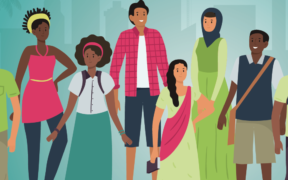Category:
Population Reference Bureau

Increasing investments in emerging technologies across low- and-middle income countries have created unprecedented opportunities to leverage digital innovations to enhance voluntary family planning programs. In particular, the use of artificial intelligence (AI) to gain new insights into family planning and optimize decision-making can have a lasting impact on programs, services, and users. Current advances in AI are just the beginning. As these approaches and tools are refined, practitioners should not miss the opportunity to apply AI to expand the reach of family planning programs and strengthen their impact.

In September 2021, Knowledge SUCCESS and the Policy, Advocacy, and Communication Enhanced for Population and Reproductive Health (PACE) project launched the first in a series of community-driven dialogues on the People-Planet Connection Discourse platform exploring the links between population, health, and the environment. Representatives from five organizations, including youth leaders from PACE’s Population, Environment, Development Youth Multimedia Fellowship, posed discussion questions to engage participants around the globe on the links between gender and climate change. The one week of dialogue generated dynamic questions, observations, and solutions. Here’s what PACE’s youth leaders had to say about their experience and their suggestions for how the discourse can be translated into concrete solutions.

Le 29 avril, Knowledge SUCCESS & FP2030 a organisé la quatrième et dernière session de la troisième série de conversations de la série Connecting Conversations, Une taille unique ne convient pas à tous : les services de santé reproductive au sein du système de santé élargi doivent répondre aux divers besoins des jeunes. Cette session s'est concentrée sur la façon dont les systèmes de santé peuvent s'adapter pour répondre aux besoins changeants des jeunes à mesure qu'ils grandissent pour s'assurer qu'ils restent pris en charge.

Ce dialogue politique virtuel a discutait les obstacles à l’utilisation durable de la contraception chez les jeunes et à créer des opportunités de collaboration entre les organisations dirigées par des jeunes, les journalistes et les jeunes chercheurs.

PACE convened a two-hour virtual policy dialogue on youth contraceptive discontinuation in West Africa on May 26, 2021. The event aimed to increase regional policymakers’ commitment to addressing the barriers to sustained contraceptive use among youth and forge collaboration opportunities for youth-led organizations, journalists, and young researchers.

Recent updates to digital health case studies highlight ways programs have changed in the past decade, revealing insights on sustainability and scalability.

On April 29th, Knowledge SUCCESS & Family Planning 2030 (FP2030) hosted the fourth and final session in the third set of conversations in the Connecting Conversations series, One Size Does Not Fit All: Reproductive Health Services Within the Greater Health System Must Respond to Young People’s Diverse Needs. This session focused on how health systems can adapt to meet the changing needs of young people as they grow to ensure that they remain in care.















